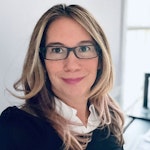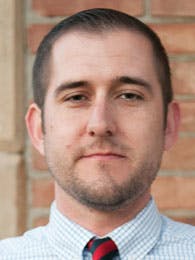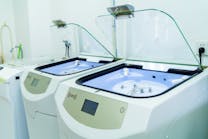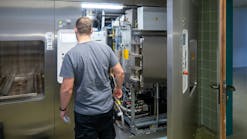The average annual salary for central sterile/sterile processing department (CS/SPD) professionals increased by 6 percent — from $57,029 in 2017 to $60,663 in 2018 — according to the results of the 2018 Healthcare Purchasing News CS/SPD Salary Survey. The majority of respondents (60 percent) reported an increase in pay over last year.
OR Liaison and Educator salaries soar: The OR Liaison position saw the biggest salary gains, rising 32 percent: from $43,500 in 2017 to $57,500 in 2018. The next highest pay hike was for Educators who reported a 22 percent average salary increase since: from $44,773 to $54,808. When digging into the data, this year’s respondents in both categories reported higher education levels compared with 2017, including post-graduate degrees, which could account for the significant salary increases.
CS/SPD Directors still lead the pack: As with previous years, the CS/SPD Director position reported the highest average annual salary: $102,824, which was up 15 percent from 2017.
Modest increases for Managers, Lead CS/SPD Techs and Surgical Instrument Techs: CS/SPD professionals in these positions reported modest salary increases from last year, with salaries for Managers and Lead CS/SPD Technicians up 4 percent, and Surgical Instrument Techs up 3 percent.
Salaries for Supervisors hold steady: Those in the CS/SPD Supervisor position reported only a slight increase over last year (1 percent): from $54,928 to $55,291.
Salaries for CS/SPD Techs dip slightly: The average annual salary for CS/SPD Technicians decreased by 2 percent since last year: from $42,100 to $41,276. When comparing the raw data from both years, this slight drop could be due to a variety of factors related to respondent demographics (e.g. fewer certified respondents, fewer with post-graduate degrees, fewer working for IDNs, fewer in higher-pay U.S. regions).
CS/SPD professionals: It’s still not enough
When asked their opinion on CS/SPD salaries, most in the profession voiced the need for higher pay, and greater recognition of their role in patient care and safety among healthcare organization leaders.
“When we talk compensation, this profession is still lacking in almost every state of our country,” said Sharon Greene-Golden, Manager of Sterile Processing for Adventist HealthCare Shady Grove Medical Center. “It is an uphill battle to get some administrators to understand the importance of what is done in the CS/SPD. The job process in CS/SPD is an important part of the patients surgical journey because the surgical instruments being processed correctly or incorrectly can impact a procedure. The CS/SPD technicians are the unseen team members of a surgical case whose expertise is needed for the OR team to complete their part of the surgery. We provide the instruments that are needed for a team to perform surgery. Those instruments must be clean, working, assembled in some order and then processed all according to the instructions for use (IFU). We have a lot of knowledge that does not require that you hold a MBA but you need to understand the ‘how to and why’ when it comes to sterile processing as well as the parameters that must be met to obtain sterility. In a nutshell, no, the pay in this field is not equitable to the job.”
“From what I hear and observe SPD tech wages remain pitiful, with salaries typically falling into the exempt versus nonexempt wage paying category,” said Chuck DePreker, CRCST, CIS, CHL, Operating Room/Sterile Processing Supply Chain Manager at Eisenhower Army Medical Center. “A new and inexperienced tech is brought in at the lowest wage range and it can take a very long period of time — as many as 20 years — to reach the top wage.”
“In many areas of the country, those where certification is not the law of the land or sterile processing departments are not unionized, compensation has remained flat and dismal,” said Casey Czarnowski, a SPD Educator in Fargo, ND “In regions without post-secondary programs readily available, new technicians can start at about that same rate as full-time night closers at fast food restaurants. Cleaning and sterilizing the instruments that improve the quality of life for people should be worth more than preparing food that decreases it!”
“It is no secret we have a compensation problem in our industry,” said Weston “Hank” Balch, BS, MDiv, CRCST, CIS, CHL, Co-Founder and Host for Beyond Clean Podcast. “As with all economic issues however, there is no ‘easy fix’ to bring compensation of CS professionals in line with the value they provide to hospitals. Part of the problem is that many of the organizations that could speak on behalf of CS professionals in the field have decided to instead focus on credentials, recognition and respect. While those are noble causes, recognition obviously does not pay the bills.”
“CS/SPD salaries are not where we should be but our organization is improving,” said Albert Huether, Director of the Sterile Processing Department at Methodist Healthcare System, San Antonio. “It has been a struggle the last seven years, but we are competitive to the local market in most job descriptions. We do have a few areas in need of improvement, such as entry level. We are working in collaboration with Human Resources to bridge this gap.”
Job security
Job security held steady, with nearly half (49 percent) of respondents reporting they are “very secure” in their positions, and an additional 46 percent stating that they are “somewhat secure.”
“In Northeast Ohio there is currently a huge demand for CS staff,” said Randy Bigler, Manager of Sterile Supply for Summa Health in Akron, OH. “From Aultman and Summa in the Canton and Akron markets, to Cleveland Clinic and University Hospitals in Cleveland, there are endless opportunities for CS/SPD professionals. The biggest challenge is finding qualified, experienced and certified staff.”
Huether attributes job security in his city — San Antonio — to the lack of experienced personnel available in the area to meet the open job market demand. He notes that this has contributed to an “employee’s market.”
Czarnowski states that the job market for sterile processing professionals is strong in his market of Fargo, ND as well, stating:
“With high turnover being the norm, a medium or high performer can expect to stay in the job for as long as he or she wishes. Some hospitals in our region require certification, while others unfortunately do not. So, a technician can continue to serve in the career as long as the salary is manageable to him/her, and he/she is able to pass a certification test, if required by their healthcare system.”
More set their sights on certification
The states of New Jersey, New York, Connecticut and Tennessee currently require central service technicians to be certified. According to Heidi Melnyk, Executive Director of the Certification Board for Sterile Processing & Distribution (CBSPD), New York is the only state so far to specifically cite in their statute that the certifying organization for certification must be accredited.
“The CBSPD has three of its certifications accredited by the National Commission for Certifying Agencies (NCCA): Technician, GI Scope and Management. Our Technician certification has been accredited since 1997,” said Melnyk.
Josephine Colacci, Esq., Government Affairs Director for the International Association of Healthcare Central Service Materiel Management (IAHCSMM), provided HPN this update on additional legislative efforts around certification requirements.
“In January, IAHCSMM introduced legislation in Rhode Island for the first time,” said Colacci. “Rhode Island’s legislative session ends in June and we are hopeful about having a committee hearing soon. Our Massachusetts bill successfully passed out of the Joint Public Health Committee and is awaiting a vote in the Joint Health Care Financing Committee. Our Massachusetts bill must be voted out of the Joint Health Care Financing Committee by March 28th to continue to move through the legislative process. We do not think that will be an issue as we have successfully passed out of this committee before. We are hoping this bill will pass the legislature in 2018.”
“Our Pennsylvania legislation has struggled over the last couple of years due to opposition from the hospital association,” she added. “We have a House bill that was introduced in 2017, and are hoping to introduce a Senate bill soon. Pennsylvania’s legislative session runs through the end of 2018.”
“Certification is key for advancement in our profession,” said Bigler. “Certification shows not only advanced knowledge, but also commitment and dedication to the job long term. In the future, one certification may not be enough for advancement. Techs will need to continue on and become a certified endoscope reprocessor, instrument specialist and managers would benefit from becoming certified healthcare leaders through IAHCSMM or managers through CBSPD. Taking some Six Sigma or other Lean courses is also a good way to advance career and salary. CS is very similar to manufacturing, one large assembly line constantly turning out the same product.”
Higher education equals higher pay
As in past years, the higher level of education achieved, the higher the average salary in the CS/SPD profession. Those with post-graduate degrees reported the highest pay, an average of $88,190. As a CS/SPD professional climbs the education ladder from a high school diploma, to an associate’s degree and next to a bachelor’s degree, his/her average salary increases approximately $10,000 according to the survey results: $51,716, $61,500 and $70,582 respectively.
“All of us didn’t grow up and say, ‘Hey, I think I want to be a sterile processing professional,’” said Loraine Durigan, CRCST, CHL, CIS, Materials Manager and CS Supervisor, Florida Hospital. “Many of us stumbled into this in some way, shape or form. I was in retail management for 10 years before I became a surgical tech and that’s how I came into sterile processing. Everybody has a different story about how they entered the profession.”
According to Bigler, there are many local community colleges in his market of Northeast Ohio offering programs that are one year or less for CS/SPD certification. Students get placed at a clinical site during the program to gain knowledge and real world experience in CS/SPD. He says many of these students end up becoming employees once they have completed the program and pass their certification. But a downside is that colleges use their CS/SPD certification programs as a feeder for their nursing, respiratory therapy and surgical assisting programs. Bigler explains that students are often on a waitlist for those programs so they complete the CS/SPD program in order to open the door for them to get hired by a hospital.
“I have also had staff move onto the larger healthcare systems that are only a 20 to 30 minute drive and can pay dollars more an hour,” said Bigler. “Also, this job is not for everyone because it can be very stressful and physically demanding at times. Instruments sets can get heavy and it’s a workout wrapping 25 loaner sets. I think the work hours are a drawback for most people as well. The majority of the work is performed, after the surgery schedule, which means afternoon shift. It’s hard to find staff to work 3-11 p.m. Most expect to work dayshift right away.”
“Those progressive states that have instituted laws regarding CS/SPD certification have enjoyed an increase in post-secondary offerings for sterile processing, but the rest of the country will not match that until public opinion changes,” said Czarnowski. “Area colleges and tech schools will not initiate programs without a strong financial incentive to do so, which means students signing up for their programs. In areas without the requirement for certification, or the presence of unions for SPD workers, higher learning institutions have little incentive to offer programs that feed into the profession.”
Continuing education remains a priority
The survey results point to continuing education as a top priority among CS/SPD professionals, with 80 percent of respondents participating in 10 or more continuing education courses/lessons each year, of which 35 percent participate in 20 or more (up 5 percent over 2017).
“Sterile Processing and the healthcare field itself, is constantly altering with updated standards, practices, products and technologies. Therefore, it’s important to keep abreast of these changes by focusing on continuing education,” said Melnyk. “Keeping current in education is vital to the profession, as well as ensuring patient safety. Moreover, it enables the certificant to increase his/her fluency within SPD while maintaining, as well as earning, education relevant to his/her respective certification.”
“Change is the one constant in today’s healthcare. Central Service (CS)/Sterile Processing professionals need a solid background in processing basics to enable them to adapt to changes, make good decisions and meet the needs of today’s healthcare providers,” said IAHCSMM’s Education Director Natalie Lind. “We see a constant need for education as CS technicians and managers strive to keep abreast of new information and technologies.”
But despite the profession’s commitment to continuing education, only 12 percent of respondents said their hospitals give them higher levels of compensation for obtaining certified education units/points.
CS/SPD as a profession: stuck below or rising above?
“As the CS/SPD profession gains more internal recognition in their respective hospitals and outpatient surgery centers, the role that is played by those professionals gets noticed by the local community,” said Greene-Golden. “Safety is the number one job of the CS/SPD professional and we strive every day to meet that requirement for our patients. We want every patient to have a great outcome and here at Shady Grove Medical Center we do our work using the best practice standards of the industry.
“Fifteen years ago the CS/SPD professional was unheard of in the hospital in which they worked,” she added. “With increasing SSIs (surgical site infections) and the act to get those numbers under control this group has come to the forefront as having a stake in the game. One driving force is that most hospital administrators want to know all of the players in the game in their effort to combat SSIs.”

Kara Nadeau | Senior Contributing Editor
Kara Nadeau is Sterile Processing Editor for Healthcare Purchasing News.
























